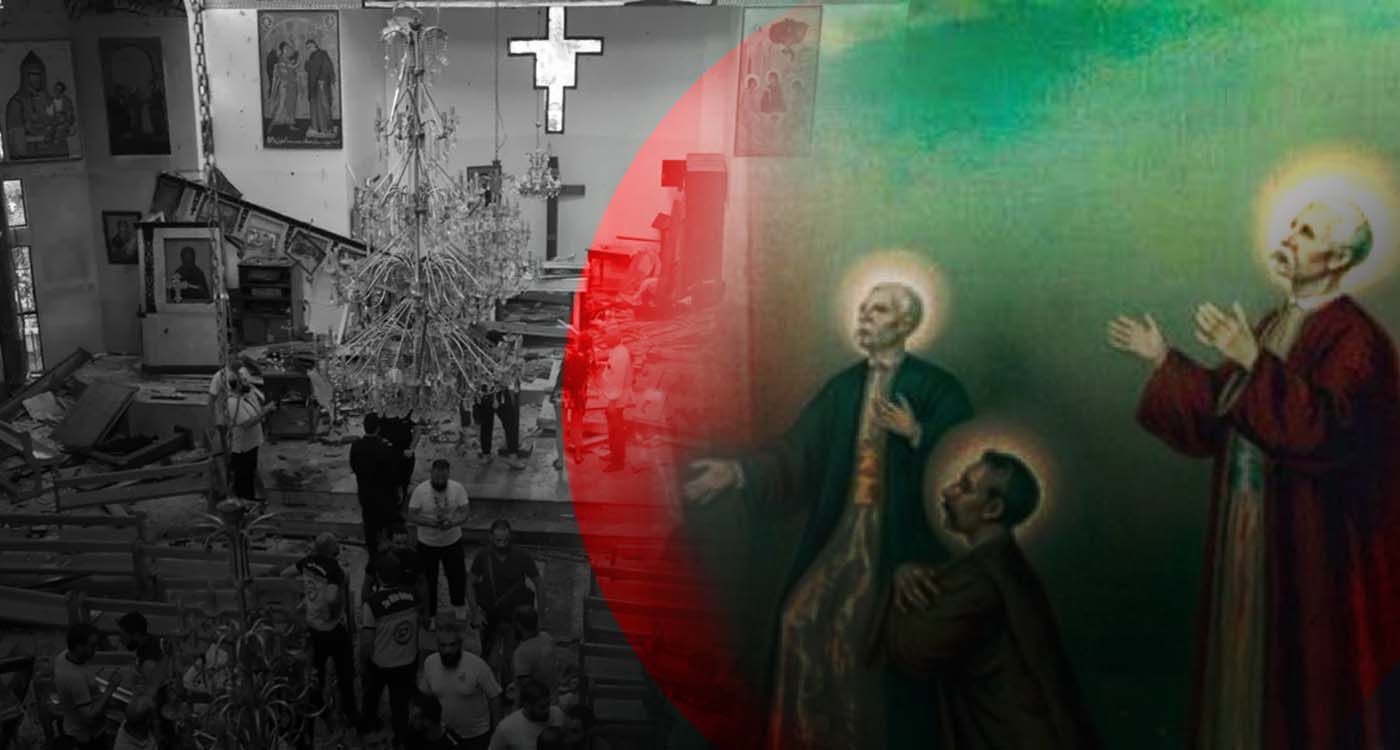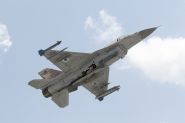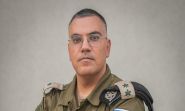
On July 10, Lebanon solemnly celebrated the first Mass honoring the Massabki Brothers following their recent canonization.
On June 22, a deadly bombing inside Damascus’s Greek Orthodox Church of Saint Elijah during Mass claimed 25 lives and left around 50 injured.
In response, the Greek Orthodox Patriarch of Antioch, Youhanna X, rightly declared that the victims deserve to be honored as martyrs of the faith, just as those who perished in past tragedies in Lebanon, Iraq, and Egypt.
This is especially true for two courageous men who risked their lives to subdue the attacker wearing an explosive belt. Regardless of any claimed motive, such an act of hatred is utterly unjustifiable.
Some commentators have noted this was the first attack inside a Syrian church since the 1860 Damascus massacres, underscoring the extreme fanaticism involved.
Coincidentally, on July 10—the anniversary of their martyrdom—the Maronite Church held two solemn Masses honoring the three Massabki Brothers, recently canonized by Pope Francis on October 20, 2024. The commemorations took place at Saint John’s Church in Jounieh and the summer seat of the Maronite Archeparchy of Sarba in Ashkout.
Originally planned as an ecumenical event, unforeseen circumstances led to its postponement.
The Massabki Brothers were among the victims of the Damascus pogroms, during which they and eleven European Franciscan friars were surrounded and massacred by Druze and Muslim militias. Thousands of Christians—estimated by some at up to 11,000—were slaughtered in Bab Touma, Damascus’s Christian quarter.
Francis Massabki, a wealthy and honorable merchant known for his generosity to the poor and father of eight, was among the victims.
On July 10, Francis and his brothers Rouphael and Abdel Mohti barricaded themselves inside the Franciscan convent near Bab Touma. But a traitor opened a back door for the attackers. Francis, who had lent money to Abdallah al-Halabi—a prominent Muslim figure and instigator of the violence—was offered freedom and salvation for his family if he converted to Islam. He refused, reportedly saying, “Sheikh Abdallah can keep my money. You may take my life, but my faith is untouchable. I am a Christian.”
He was brutally killed with knives and axes. His two brothers, one mentally challenged, also refused to renounce their faith and suffered the same fate. The Franciscan friars faced similar brutality; some escaped, but many were killed.
The Massabki brothers and the eleven Franciscan friars, martyred together, were jointly beatified in 1926 through the Franciscan Order’s initiative. However, their legacy gradually faded amid major historical events such as World War II, the formation of Greater Lebanon, the reopening of Saint Charbel’s tomb in the 1950s, and the canonization of Saint Rafqa. It was a fortuitous discovery in 2002 that reignited their cause for canonization.
Visitors to the Maronite bishop of Sarba’s summer residence found two faded pink folders containing Arabic writings by Bechara Shemali, the Maronite bishop of Damascus at the time of the massacres. These writings detailed the lives and beatification process of the Massabki Brothers.
They also uncovered a vessel containing bones labeled as those of the Massabki Brothers and eight Franciscan fathers killed on the same day and buried in a common grave.
This extraordinary discovery was reported to Bishop Guy-Paul Noujeim and, following Vatican procedures, led to their joint canonization.
Beyond Confessional Divides
The tragedies of 1860 and June 22 share a profound truth: they transcend confessional boundaries. Regardless of whether the victims were Latin, Maronite, or Orthodox, they fell as children of the Cross. Pope Francis aptly described this as the “ecumenism of blood.”
Addressing Coptic Pope Tawadros II in 2014, Pope Francis stated:
“The blood of today’s martyrs unites us all. In some parts of the world, Christians are killed simply for wearing a cross or carrying a Bible. Before their deaths, no one asks if they are Evangelical, Orthodox, Lutheran or Catholic… They are all Christians, and their blood is one and the same. This is the ecumenism of blood.”
For the Pope, this ecumenism is no mere figure of speech; it is a living reality linking the martyrs of 1860, those of 2025, and thousands more who fall today across Africa, Asia, and Latin America—a bond stronger than words.
The blood shed for faith becomes a bridge between denominations, a powerful call for unity.
Christians and History
In a 2010 lecture at Saint Joseph University (USJ) on Eastern Christianity, Patriarch Emeritus Michel Sabbah of Jerusalem reflected: “History is the place where we encounter God.” This echoes the priest and theologian Romano Guardini’s words that: “Eternity is prepared within time” (from The Messiah).
It is at this intersection that all Eastern Churches stand today.
This is the history we live now. It is not a new Middle East unfolding before our astonished eyes, but the Middle East of the powerful. To all who leave, seeking to forget their homes and the familiar, shadowed walls (Shehade), it must be said: survival does not require leaving the East.
The dangers facing Christians are not solely rooted in fundamentalist readings of the Quran. Equally threatening is the secularism sweeping in from the West, relentlessly broadcast through countless electronic networks. These threats are subtle, wearing “masks” that silently invade minds and hearts.
Saint Paul warned that what sometimes appears as an “angel of light” may be a deception.
Against these dangers, the Church and Christian institutions must fulfill their duty to warn. The consumption of alcohol and the lifting of prohibitions—particularly dietary restrictions and dress codes for women—are not Christianity itself, but freedoms granted at great cost by the one who freed us from the yoke of the Law; freedoms that remain governed by the supreme commandment of Love.
Islamo-Christian Relations
Politics undeniably plays a role. Patriarch Sabbah stressed: “The survival and growth of Christians in the Arab Middle East is an Arab and Muslim concern as well. Christian emigration demands action by the state and society, signaling clear hospitality and fostering peace and stability. This outreach, vital to Arab Christians, is still awaited from Arab Muslims.”
Today, more than ever, all Lebanese—Christian and Muslim alike—and all Eastern Christians face a decisive moment: one that calls for openness, dialogue, vigilance, and solidarity amid confusion and upheaval.
Largely overlooked in historical accounts, one of the most revered victims of the 1860 Damascus massacres was Greek Orthodox priest Joseph Georges Haddad Ferzli, canonized by his Church under the name Saint Joseph of Damascus.
Born in Beirut on May 15, 1793, Father Joseph was ordained in Damascus in 1817. From 1836 until his death, he served as director of the Patriarchal School at Balamand, transforming it into a leading center of theological education for the entire Middle East.
A scholar and reformer, he translated and edited numerous liturgical texts into Arabic, contributing significantly to the renewal of Antiochian Orthodoxy. His pastoral dedication also stood out during epidemics and public health crises, notably the yellow fever outbreak of 1848.
During the massacres of July 9 and 10, 1860, Father Joseph refused to abandon his post. He remained in the Patriarchal Cathedral in Bab Touma, praying with his congregation, distributing communion, and offering comfort to those awaiting death.
On July 10, as he stepped outside to hide the consecrated elements, he was recognized by assailants and brutally murdered with an axe, still bearing the Eucharist on his person. He was canonized in 1993.
Among his pupils were several future bishops and archbishops, including Saint Raphael of Brooklyn. His feast is celebrated on July 10, the day of his martyrdom.



Comments